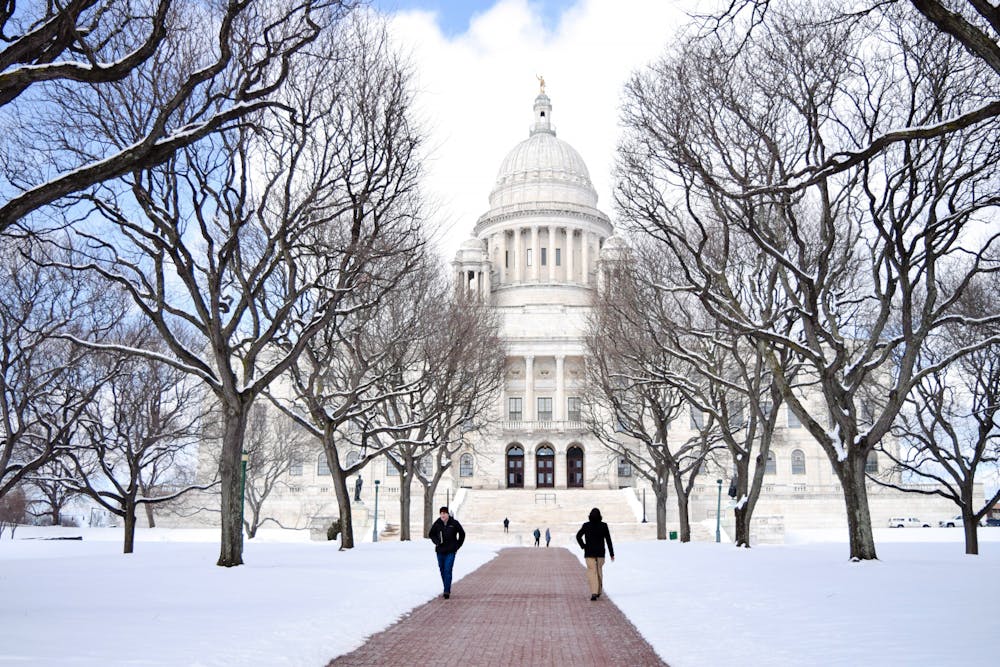Governor Dan McKee announced the creation of a new environmental justice committee through the Executive Climate Change Coordinating Council in a Jan. 19 news release. EC4 works to incorporate climate considerations into all state government operations and “develop practical solutions that allow Rhode Island to ‘weather the storm’” of climate change, according to its website. The committee was announced as part of $150 million in funding to tackle climate change in McKee’s proposed budget for fiscal year 2023.
McKee believes “that all Rhode Islanders — regardless of income, race, ethnicity or national origin — have a right to live in a clean and healthy environment, and that no community should be burdened with adverse environmental and public health consequences,” Matt Sheaff, a spokesperson for McKee, wrote in an email to The Herald. The governor “look(s) forward to working with leaders of the Rhode Island General Assembly to enact the more than $150 million in specific remedies to combat climate change and address environmental injustices,” he added.
According to Chair of EC4 and Acting Director of the Rhode Island Department of Environmental Management Terry Gray, the committee members have not been selected yet. But Gray emphasized the importance of incorporating community members affected by environmental injustice as part of the group. “Historically, a lot of (these) communities have been underrepresented in these discussions,” he said. “By creating an advisory board that really is looking at climate change through the lens of those communities, I think it is going to provide some very valuable feedback to us.”
Gray said that he expects the new committee will be formed in the next several months. “We’re probably going to look at a combination of very local advocates, neighborhood advocates, as well as statewide advocates, and just try and make sure we have a good mix of perspectives to help us come up with the right decisions,” he said.
Gray said he anticipates that the new advisory board will evaluate the broader work of EC4 “and provide a different perspective and a valuable perspective on how that (work) impacts environmental justice communities.”
Despite McKee’s optimistic announcement, Director of the Racial and Environmental Justice Committee of Providence April Brown said she had concerns about the new advisory board’s prospects. “The governor’s new committee, we think, is a first step. However, we’re not convinced that they’re … serious.”
“REJC has been in existence for five years. We’re hiding in plain sight,” she said. “And yet, none of us were consulted about how environmental justice could be implemented in the city.”
She described fighting for environmental justice as “daily work” that “can’t be done with a quick fix.”
According to Professor of Environmental Studies and Sociology J. Timmons Roberts, the state government has historically not taken sufficient action on environmental justice. “Mostly it’s acknowledged as an issue, but not seriously addressed,” he wrote in an email to The Herald. He described the new EC4 committee as “a start.”
Gray, Roberts and Brown highlighted the Port of Providence as a major contributor to environmental injustice in the city. Roberts wrote that the Port affects minority communities in south Providence.
“Truthfully, the fact that the Port of Providence is still a working area is problematic. And until that is addressed, we are convinced that the city and the state are not really serious about climate justice in the city of Providence,” Brown said.
Gray said that transportation emissions are one of the most pressing environmental issues in the state. “A lot of our environmental justice communities are located adjacent to our busiest and most congested highways,” he said. Gray added that the new committee could potentially address this issue by developing plans to meet emission reduction targets in the transportation sector. Making these changes could then “translate into health improvements and air quality improvements for a lot of (the state’s environmental justice) communities,” he added.
Gray noted that a greater emphasis on equity needs to occur in environmental planning across the state. “We need to look at how equity and justice is reflected in our approach to climate change as we move forward,” he said.





